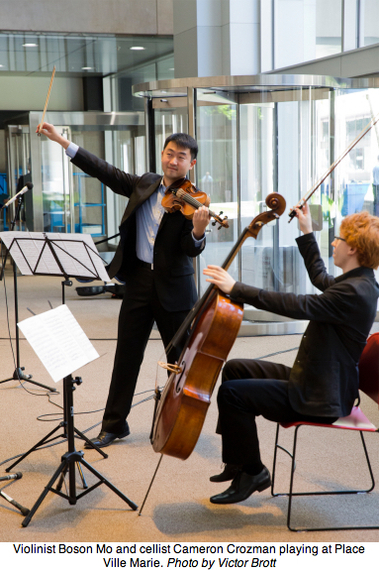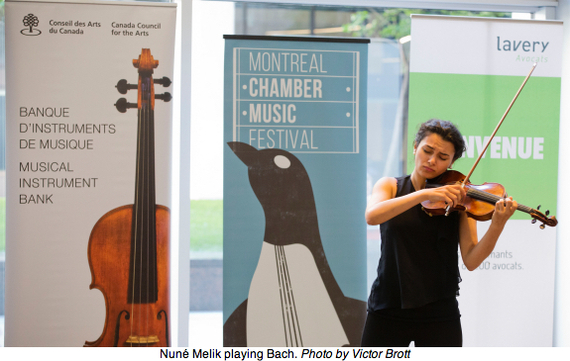The 21st annual Montréal Chamber Music Festival concluded Sunday afternoon at McGill University's Pollack Hall with 19 winners of the Canada Council for the Arts Musical Instrument Bank (MIB) competition playing Mozart, Bartok and Dvorak on glorious-sounding violins and cellos made from the late 17th to the early 20th centuries, including examples by Stradivari, Guarneri and Gagliano.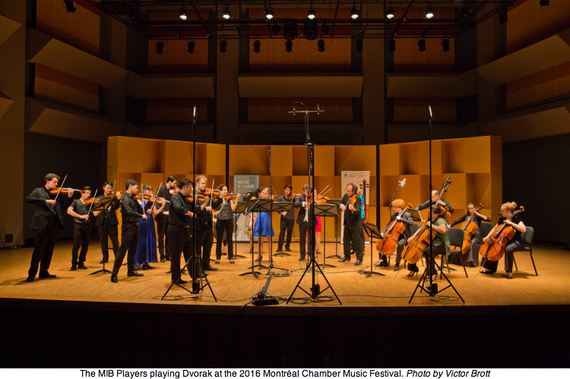
During the week preceding, while headline acts like cellist Amit Peled, pianist Alon Goldstein, the Fine Arts Quartet and retired Canadian tenor Ben Heppner were playing Pollack Hall at night, it was at a series of lunchtime concerts at Place Ville Marie in downtown Montréal that the 19 winners showed their worth and their pluck by playing for a cross-section of Montréal's financial world like classical music buskers.
The concerts began on Monday with cellist Noémie Raymond-Friset playing Bach on a Joannes Guillami inbstrument from 1769; they ended on Friday with violinists Andréa Tyniec and Timothy Chooi playing Prokofiev on the Stradivarius Baumgartner from 1689 and the Stradivarius Windsor-Weinstein of 1717.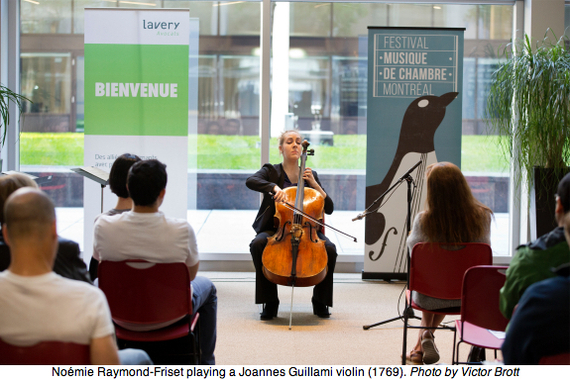
The music these three made, and every Bank performer made through the week, was both technically extraordinary and deeply involving. And each of the 19 had compelling life stories to tell.
- Violinist Emmanuel Vukovich took six years off to study environmental agriculture during which he lived on a farm, milked cows daily, and played his fiddle (not from the Bank!) in the barns.
The 19 united by their participation in the Musical Instrument Bank where each plays an instrument of almost unimaginably more value, and quality, than anything they could afford on their own; each told me stories of how playing their instruments had transformed their musical, professional and personal lives.
These 19 young Canadian citizens and residents, many of them already international globe-trotters, come from all across the nation, from Winnipeg, Vancouver, Edmonton, Toronto and Montréal, like a charming, photogenic group that might come together in ten years for a classical music, The Big Chill reunion.
At the hourlong lunchtime concerts, a large part of the story were the audiences; whether forewarned or unsuspecting, all came to listen politely and wound up cheering and ennobled, moved by the sheer beauty of the music and the riveting spectacle of charismatic young artists playing their hearts out on incomparable instruments - some made more than three centuries years ago.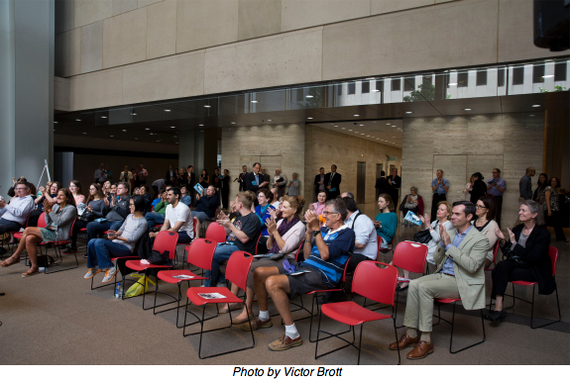
On each day, the 70 chairs filled up quickly while numerous onlookers gathered standing around the elevators; while the elevators were bleating electronic tones all through the concert, the onlookers were listening in rapt enjoyment. An 85-year old grandmother, whose parents had come from Ukraine, sat next to a bushy-tailed young accountant. I sat next to a violinist working south of the border in Wichita and Tulsa, who had grown up and learned her craft in Montréal.
And while it was clear the 19 Bank players were ready to show the Montréal public why they were chosen from a large nationwide pool of brilliant applicants, why their instruments are so valuable, and how their lives, skills and futures have been dramatically transformed, perhaps more important to their future and the future of classical music, it was in their roles as cultural ambassadors that they were most exhilarating and most inspiring.